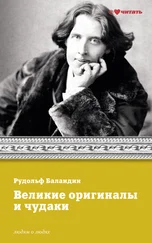7 Rickey Henderson: Robert Buderi. Crime Pays for Rickey Henderson, Who's (Base) Stealing His Way Into the Record Book // People, August 23, 1982, www.people.com/people/archive/ article /o, 20082931, oo.htmf Lou Brock: Lou Brock Biography // ESPN, espn.go.com/mlb/player/bio/Jid/19568/lou-brock ; Vince Coleman: William C. Rhoden. Coleman Is a Man in a Hurry // New York Times, www.nytimes.com/1985/06/12/sports/coleman-is-a-man-in-a-hurry.htmj Maury Wills: Bill Conlin. The Maury Wills We Never Knew // Chicago Tribune, February 24, 1991, articles. chicagotribune.com/1991-02-24/sports/9101180148_i_maurice-morning-wills-maury-wills-bases ; Ron LeFlore: Bill Staples and Rich Herschlag. Before the Glory: 20 Baseball Heroes Talk About Growing Up and Turning Hard Times Into Home Runs. Deerfield Beach, FL: Health Communications, Inc.: 1997; Omar Moreno: Personal communication with Jim Trdinich , February 1, 2015; Tim Raines: Ron Fimrite. Don't Knock the Rock // Sports Illustrated, June 25, 1984, www.si.com/vault/1984/06/25/619862/dont-knock-the-rock\ Willie Wilson: Willie Wilson. Inside the Park: Running the Base Path of Life. Olathe, KS: Ascend Books, 2013; Marquis Grissom: Jerome Holtzman. Marquis Grissom Is Newest Hero of the Fall 11 Chicago Tribune, October 24,1997, http: 11articles.chicagotrihune.com I 1997-1 o- 24/sports/9 7102400}}_i_american-league-champion-marquis-grissom-bases; Kenny Lofton: Associated Press. Former Wildcat Lofton Debuts with Atlanta, Goes 2-for~4 // Arizona Daily Wildcat, March 28, 1997, http://wc.arizona.edu/papers/90/122/20_1_m.html .
8 Frank J. Sulloway and Richard L. Zweigenhaft. Birth Order and Risk Taking in Athletics: A Meta-Analysis and Study of Major League Baseball // Personality and Social Psychology Review 14 (2010): 402–416.
9 David Falkner. Great Time Coming: The Life of Jackie Robinson, from Baseball to Birmingham. New York: Simon & Schuster, 1995.
10 Rod Carew. Carew. New York: Simon & Schuster, 1979; Martin Miller. Rod Carew Becomes Champion for the Abused // Los Angeles Times, December 12, 1994, http://articles.latimes.com/1994-12-12/ local/me- 8°68_i_rod-carew.
11 McCarron. Jacoby Ellsbury’s Steal of Home; Ken Rosenthal. You Can Go Home Again, Says Molitor // Baltimore Sun, April 6, 1996, articles.baltimoresun.com/1996- о 4-06/sports/1996097010_i_ molitor-twins-orioles; Jim Souhan. My Day with Molitor in 1996 // Star Tribune, November 4, 2014, www.startribune.com/sou-han-blog-my-day-with-molitor-in-1996/281481701 ; Bill Koenig. Molitor Is Safe at Home // USA Today, June 6, 1996, usatodayjo. usatoday. com/sports/baseball/ sbbw 044 2. htm .
12 Frank J. Sulloway. Born to Rebel: Birth Order; Family Dynamics, and Creative Lives. New York: Vintage, 1997, Birth Order and Evolutionary Psychology: A Meta-Analytic Overview // Psychological Inquiry 6 (1995): 75–80, and Sources of Scientific Innovation: A Meta-Ana-lytic Approach (Commentary on Simonton, 2009) // Perspectives on Psychological Science 4 (2009): 455–459.
13 Frank J. Sulloway. Born to Rebel and Its Critics // Politics and the Life Sciences 19 (2000): 181–202, and Birth Order and Political Rebellion: An Assessment, with Biographical Data on Political Activists (2002), www.sulloway.org/politics.html .
14 James March. A Primer on Decision-Making: How Decisions Happen. New York: Free Press, 1994; см. также J. Mark Weber, Shirli Kopelman, and David M. Messick. A Conceptual Review of Decision Making in Social Dilemmas: Applying a Logic of Appropriateness // Personality and Social Psychology Review 8 (2004): 281–307.
15 Roger D. Clark and Glenn A. Rice. Family Constellations and Eminence: The Birth Orders of Nobel Prize Winners // Journal of Psychology: Interdisciplinary and Applied no (1981): 281–287; Richard L. Zweigenhaft. Birth Order, Approval-Seeking and Membership in Congress // Journal of Individual Psychology 31 (1975): 205–210; Rudy B. Andeweg and Steef B. Van Den Berg. Linking Birth Order to Political Leadership: The Impact of Parents or Sibling Interaction? 11 Political Psychology 24 (2003): 605–623; Blema S. Steinberg. The Making of Female Presidents and Prime Ministers: The Impact of Birth Order; Sex of Siblings, and Father-Daughter Dynamics // Political Psychology 22 (2001): 89-110; Del Jones. First-born Kids Become CEO Material // USA Today, September 4, 2007, http: / /usatoday}o.usatoday. com I money/companies / Management!2007-09-03-ce0-birth_N.htm; Ben Dattner. Birth Order and Leadership, www.dattnerconsulting.com/birth.html .
16 Marco BERTONiandGiORGio Brunello. LaterbomsDon tGive Up: The Effects of Birth Order on Earnings in Europe // IZA Discussion Paper No. 7679, October 26, 2013, http://papers.ssrn.com/s0l3/pa-pers. cfm? abstracted=234 JJ96.
17 Delroy J. Paulhus, Paul D. Trapnell, and David Chen. Birth Order Effects on Personality and Achievement Within Families // Psychological Science 1999 (10): 482–488; Sulloway. Born to Rebel and Its Critics, and Why Siblings Are Like Darwin s Finches: Birth Order; Sibling Competition, and Adaptive Divergence Within the Family, in The Evolution of Personality and Individual Differences , eds. David M. Buss and Patricia H. Hawley. New York: Oxford University Press, 2010; Laura M. Argys, Daniel I. Rees, Susan L. Averett, and Benjama Witoonchart. Birth Order and Risky Adolescent Behavior // Economic Inquiry 44 (2006): 215–233; Daniela Barni, Michele Roccato, Alessio Vieno, and Sara Alfieri. Birth Order and Conservatism: A Multilevel Test of Sulloway’s “Born to Rebel” Thesis // Personality and Individual Differences 66 (2014): 58–63.
18 Steven Pinker. What Is the Missing Ingredient – Not Genes, Not Upbringing – That Shapes the Mind? // Edge, edge.org/response-detail/ iioy8 , and The Blank Slate: The Modern Denial of Human Nature. New York: Penguin Books, 2003; Eric Turkheimer and Mary Waldron. Nonshared Environment: A Theoretical, Methodological, and Quantitative Review // Psychological Bulletin 126 (2000): 78-108; Robert Plomin and Denise Daniels // Why Are Children in the Same Family So Different from Each Other? // International Journal of Epidemiology 40 (2011): 563–582.
19 Thomas J. Bouchard, Jr., and John C. Loehlin. Genes, Evolution, and Personality // Behavior Genetics 31 (2001): 243–273; John C. Loehlin. Genes and Environment in Personality Development. Newbury Park, CA: Sage, 1992; John C. Loehlin, Robert R. McCrae, Paul T. Costa, Jr., and Oliver P. John. Herita-hilities of Common and Measure-Specific Components of the Big Five Personality Factors // Journal of Research in Personality 32 (1998): 431–453.
20 Sulloway. Born to Rebel ; Helen Koch. Some Personality Correlates of Sex, Sibling Position, and Sex of Sibling Among Five- and Six-Year-Old Children 11 Genetic Psychology Monographs 52 (1955): 3-50; Prank Dumont. A History of Personality Psychology: Theory>, Science, and Research from Hellenism to the Twenty-First Century. Cambridge: Cambridge University Press, 2010; How is Personality Formed? A Talk with Frank J. Sulloway 11 Edge, May 17,1998, https:// edge, orgl conversation/how-is-personality-formed -.
21 Gil Greengross and Geoffrey P. Miller. The Big Five Personality Traits of Professional Comedians Compared to Amateur Comedians, Comedy Writers, and College Students // Personality and Individual Differences 47 (2009): 79–83; Gil Greengross, Rod A. Martin, and Geoffrey Miller. Personality Traits, Intelligence, Humor Styles, and Humor Production Ability of Professional Stand-Up Comedians Compared to College Students // Psychology of Aesthetics, Creativity, and the Arts 6 (2012): 74–82.
Читать дальше
Конец ознакомительного отрывка
Купить книгу












